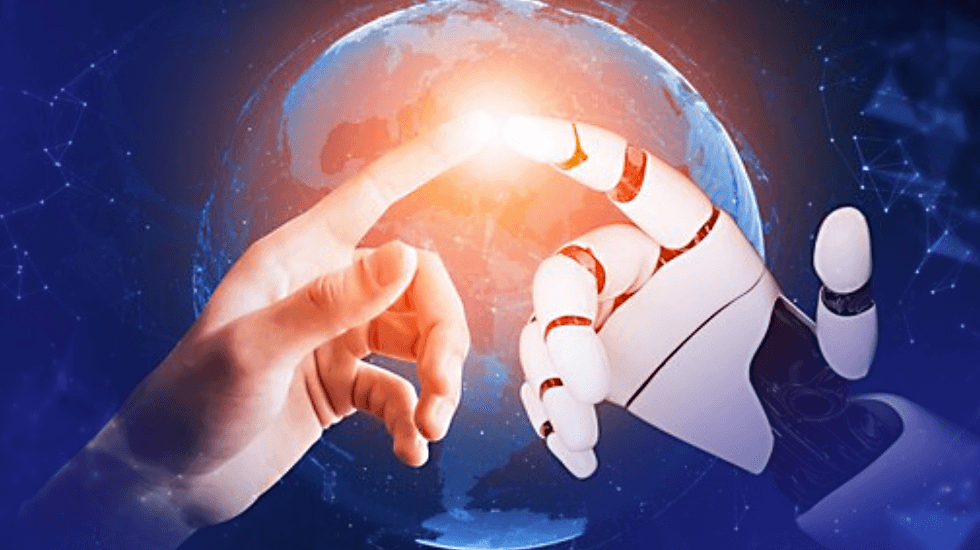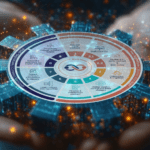Artificial Intelligence OR Artificial Instincts
Artificial Intelligence (AI) is now heavily embedded in our lives, we have all seen the technology that mimics human-like actions and behaviors: the robots that deliver room service in hotels, the automatic lawnmowers, self-driven cars, or that Netflix suggestion that is perfect on a Friday evening. The rapid adoption of technological innovations such as AI has expanded just about every industry, and this includes the legal industry. Technological tools such as ChatGPT, Bard, and Claude, have transformed the ever so traditional field of law.
Currently, the advent of AI is aiding lawyers automate routine, mundane and repetitive tasks from their day-to-day. This promotes efficiency, productivity, and responsiveness, consequently allowing the lawyer to do more of what actually matters.
The implementation of Generative AI particularly in Legal technology could assist with automation of legal research, contract summarization, contract drafting and reviewing and e-discovery. With this, the risk of human error is eliminated. Those that leverage AI will remain relevant in coming times.
Accordingly, the forthcoming era of AI will see it figuring out what we are thinking before we think it. AI might be smart, but it can’t replicate human traits like creativity, critical thinking, and emotional Intelligence. However, because it fetches knowledge from a number of other technologies and domains, such as Machine Learning, linguistics, computational neuroscience, or Deep Learning, and also based on the analysis of information and data, AI can therefore detect that something is not working as it should. It can also detect a problem before it happens, and even spot an opportunity that may be good for a company.
This ability is quite similar to human instincts in that it can learn to quickly accept and assess the totality of a situation, including the most nuanced, and habitually overlooked legal aspects. This means a solution can be provided that previously would not have been within the realm of possibility of a single lawyer bound by their skill set and individual perception.
This is because there is a substantial amount of data that AI models like ChatGPT and Bard are trained on, it learns what is normal and what is not.
Here’s an example of what we often experience in our use case: in a lease agreement, a Lessee ought to pay a quarterly contribution to the Lessor’s marketing fund, however this clause is embedded well within the contract and has multiple other obligations attached to it. Manual processes are known to be error-prone, this can easily be missed due to human conditions such as fatigue, tight deadlines, convoluted texts, and boredom, resulting in financial losses as collections will not record it in a statement of account, but AI will pick up all amounts ought to be charged to the Lesse.
The collaboration of lawyers and AI tools is what makes for greater outcomes, meaning each contractual obligation undertaken is fulfilled. Time spent looking for that perfect case is reduced, and time spent sifting through pages of discovery looking for a needle in a haystack is eliminated, meaning more time is spent perfecting arguments for your client.
The interpretation of nuanced information that human beings have to offer will still be a critical aspect to the legal industry: multifaceted decision making, persuasive advocacy and negotiation are still human traits essential to the very nature of law. However, the skills, specializations and mannerisms will need to complement the relevant technology. A lawyer ahead of their time will need to develop analytical skills to make sure AI processes produce accurate and non-discriminatory outputs, they will learn how to identify inherent biases as well as how to leverage their judgment and expertise in applying the solutions of AI to real life complexities and provide the client a client-oriented experience.
Decision making involves processing relevant and available data and comparing it with the possible consequences of a choice of options. This process when embarked on by humans is limited to the data from a perspective shaped by their lives and day-to-day interactions and could be impacted by subconscious thoughts. AI should be more central in assisting to make quicker, actionable, accurate decisions. Businesses can no longer afford to be impacted by error-riddled decision making. We have seen only the beginning of what is to come. With the advent of AI we will witness even more intuitive technologies in our everyday lives.
In a world where technology evolves faster than you can say ‘Artificial Intelligence’, are you keeping up with changing trends? Legal Interact has found a formula that works, we have developed, and as AI shapeshifts, will continue to develop; a Contract Lifecycle Management system that uses AI to extract pertinent contractual provisions for ease of tracking key dates and obligations. This technology “reads” your contracts and thereafter creates tasks (also customizable) and reminders for key dates. Our system also serves as a contract review and drafting tool with plenty precedents to work with, as well as centralized repository with a search functionality allowing filtering according to various contract essentials like contracting “Parties” or even “Force Majeure” clauses. where all contracts of diverse types lie.
With Legal Interact’s technology, both the contract drafter and the contract manager have a co-pilot in their day-to-day operations, making their processes remarkably quicker and more accurate.
As legal technology advances, the synergy of law and AI signifies a future where legal processes become effortlessly instinctual thus yielding greater outcomes for the legal industry’s betterment. Artificial Intelligence will not be replacing lawyers; however, lawyers will need to become legal tech savvy to give them a competitive advantage.







